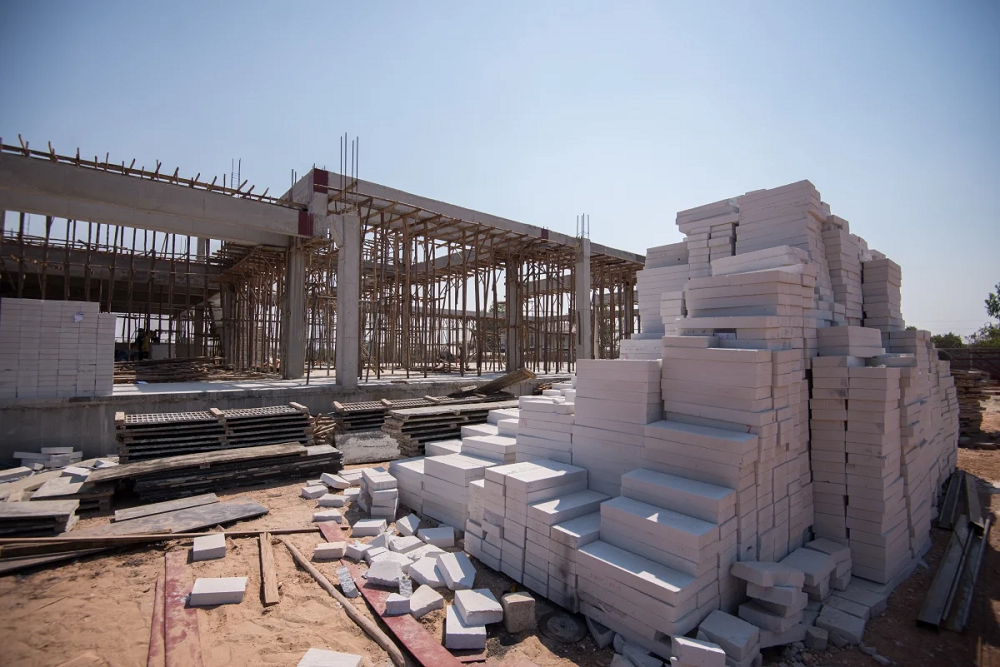Building safety is a paramount concern in the construction industry. Whether it’s a residential home, commercial building, or infrastructure project, the structural integrity and overall safety of the construction rely heavily on the quality and reliability of the materials used. In this blog post, we will explore the critical role of reliable construction materials in ensuring building safety. Additionally, we will delve into the importance of construction materials testing and how it contributes to the overall safety and durability of structures.
The Importance of Reliable Construction Materials
Reliable construction materials are the backbone of any successful building project. They provide the necessary strength, stability, and longevity required to withstand various environmental conditions, loads, and stresses over time. The use of substandard or compromised materials can lead to severe consequences, including structural failures, compromised occupant safety, and costly repairs.
Ensuring Quality through Construction Material Testing
To ensure the reliability and safety of construction materials, rigorous testing is essential. Construction material testing involves subjecting various materials to controlled laboratory experiments and field evaluations. This testing process aims to assess their strength, durability, performance characteristics, and adherence to industry standards and regulations.
Types of Construction Material Testing
Construction material testing encompasses a wide range of tests, depending on the specific materials being used. Here are a few examples of common construction material tests:
Concrete Testing
Concrete is a vital construction material used in foundations, walls, and structural elements. Testing its compressive strength, water-cement ratio, workability, and other properties helps determine its suitability and performance in various applications.
Steel Testing
Steel reinforcement is crucial for structural stability. Testing steel materials ensures they meet specified standards, including tensile strength, yield strength, and chemical composition.
Soil Testing
The quality of the soil on which a building stands directly affects its stability. Testing soil samples helps assess its bearing capacity, compaction, and drainage properties.
Asphalt Testing
For road construction projects, asphalt testing verifies its durability, resistance to temperature changes, and load-bearing capacity.
Benefits of Construction Material Testing
Construction materials testing provides numerous benefits. Firstly, it enables early detection of material defects and weaknesses, allowing for timely remedial actions before they escalate into significant problems. By identifying these issues beforehand, construction professionals can address them promptly, preventing potential safety hazards and costly repairs down the line.
Secondly, material testing ensures compliance with regulatory standards, industry specifications, building codes, and regulations. By subjecting construction materials to rigorous testing, companies can verify that they meet the required standards, enhancing overall safety and legal compliance. This adherence to regulations not only protects the well-being of occupants but also safeguards the reputation and credibility of the construction project.
Another advantage of construction material testing lies in optimized material selection. Through testing, professionals can accurately assess the strength, durability, and environmental impacts of various materials. This knowledge helps in selecting the most suitable materials for specific applications, ensuring that they perform optimally in their intended roles. By using the right materials from the start, construction projects can avoid issues related to structural integrity, longevity, and maintenance.
Lastly, construction material testing contributes to enhanced durability and longevity of structures. Reliable materials that have undergone thorough testing exhibit improved resistance to wear and tear. By using such materials, buildings and infrastructure projects can withstand the challenges posed by environmental conditions, loads, and stresses, ensuring their long-term stability and safety.
Conclusion
Reliable construction materials are a cornerstone of building safety. By conducting comprehensive construction material testing, construction companies can confidently select and use materials that meet required standards and deliver the desired structural integrity. Investing in reliable materials and testing processes not only safeguards building occupants but also minimizes the risks of structural failures and costly repairs. Prioritizing the use of reliable construction materials and embracing rigorous testing practices is a crucial step towards building safer and more durable structures.




